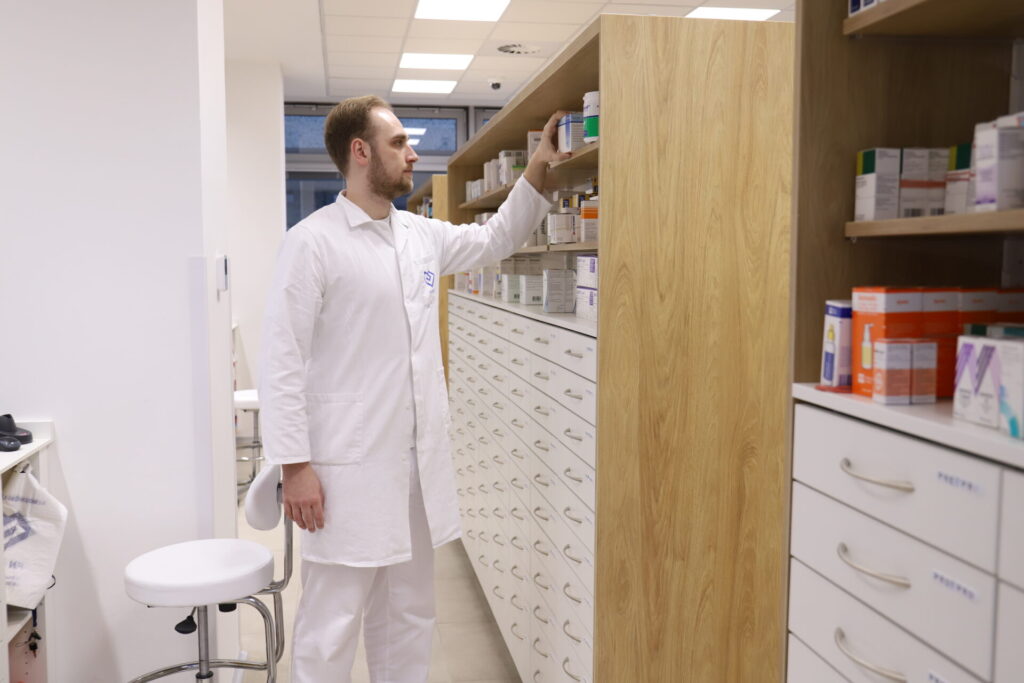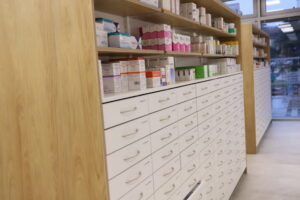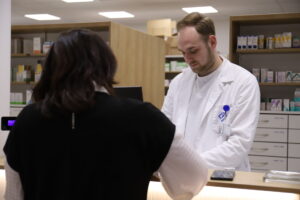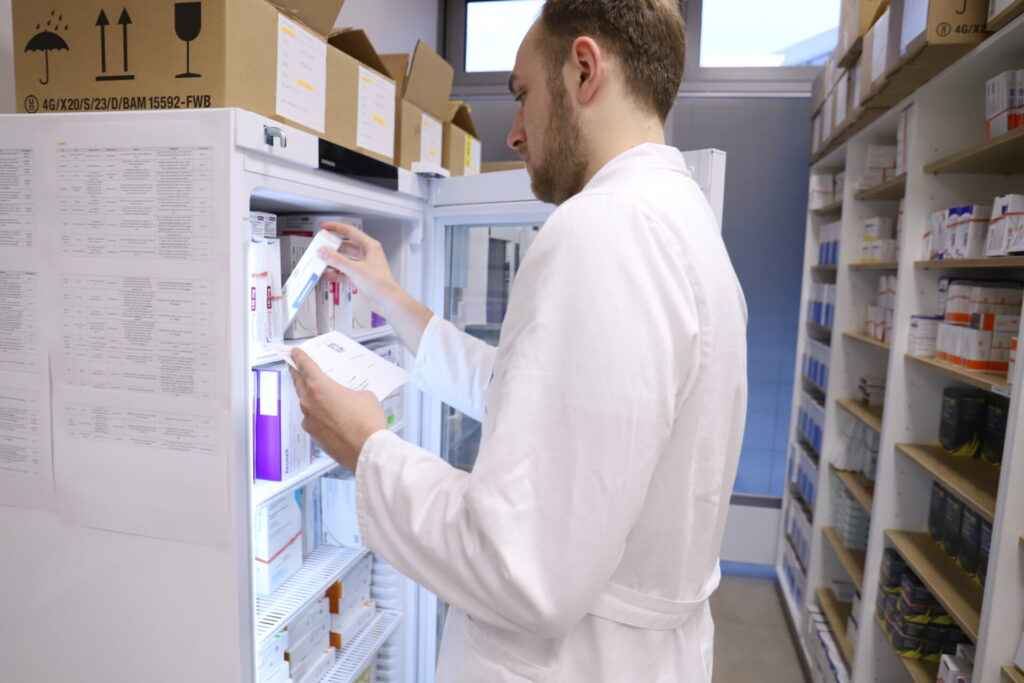How to handle medicines safely?
 Currently, pharmacotherapy (use of drugs) is an integral part of the treatment and prevention of a wide range of both acute and chronic diseases. The handling of pharmaceuticals thus becomes the daily bread for an increasingly large part of our population. Therefore, although the use of not one, but even a whole range of different drugs is a common everyday matter for many of us, it is important to always remember that medicines need to be treated with respect. In case of mishandling, they can represent a potential risk not only for our health, but also for the environment.
Currently, pharmacotherapy (use of drugs) is an integral part of the treatment and prevention of a wide range of both acute and chronic diseases. The handling of pharmaceuticals thus becomes the daily bread for an increasingly large part of our population. Therefore, although the use of not one, but even a whole range of different drugs is a common everyday matter for many of us, it is important to always remember that medicines need to be treated with respect. In case of mishandling, they can represent a potential risk not only for our health, but also for the environment.
Proper storage of medicinal products
Most of us probably think that in order for us to use a drug, whether prescribed by a doctor or bought in a pharmacy without a prescription, to be safe, it is necessary to follow the prescribed dosage. However, this is not the only condition for safe and effective pharmacotherapy. "Correct use of the medicine" does not mean only compliance with the recommended dose. Among other things, the method of application, administration of the drug in relation to food, other drugs that the patient is taking, and in some cases also the composition of the diet have an effect on whether the use of the drug will have the desired effect.
In addition to the appropriate method of use, compliance with the storage conditions of a specific drug is also essential for the safety and effectiveness of the treatment.
The storage temperature, or the protection of the drug from sunlight or air humidity, thanks to its storage in the original packaging, are crucial for guaranteeing the quality, safety and effectiveness of the drug throughout its useful life.
While some medicines can be stored at room temperature, i.e. up to 25˚C, or in some cases up to 30˚C, others require cold storage (2-8˚C). Some require protection from cold or frost. The wording "protect against freezing" can also be found with some medicinal products that require storage in the refrigerator, and therefore it is always important that such medicinal products are kept in the refrigerator outside its freezing part, without contact with its walls. When storing medicines in the refrigerator, it is also important to prevent their contact with food or drinks stored in it.
As already mentioned, for some medicines, in addition to the appropriate storage temperature, their protection from atmospheric humidity is also key, which is achieved thanks to the manufacturer's original packaging. For such medicines, it is therefore essential that they remain stored in their original packaging until they are used by the patient, and that the patient does not take them out of them in advance and does not prepare them, for example, in medicine dispensers. An example of this type of medicine can be, for example, tablets that dissolve in the mouth (orodispersible), which, after being removed from the blister pack, absorb moisture in the air, disintegrate and thus become unusable. A similar phenomenon can also be encountered with effervescent tablets, which are protected from moisture in their tube packaging by a desiccant (for example, based on silica gel) located in their lid. Because of the increased air humidity, it is also advisable to avoid storing medicines in the bathroom.
For some medicines, the recommended storage conditions before opening and after opening the primary package may differ. We can encounter this, for example, with some eye drops, inhalers or pre-filled insulin pens, where while the pens in the original packaging, which the patient picks up at the pharmacy, should be kept in a refrigerator (2-8˚C) until their first use, the pen which the patient is currently using, should already be stored at room temperature (that is, up to the mentioned 25˚C or 30˚C respectively) and in the package leaflets of some of them we can even read that storage in the refrigerator is expressly prohibited for the currently used pen. In this way, at room temperature, the pen can then be stored and used mostly for four weeks (the specific information is always given in the package leaflet of the given medicinal product), after this time it must be disposed of, even if the medicinal product was not whole consumed.
Violation of storage conditions can result in their deterioration due to a change in consistency for some medicines, which can happen, for example, in suppositories stored at too high temperatures. In the case of some medicines, non-observance of the recommended storage conditions can lead to the decomposition of the contained active substance and consequently to their insufficient therapeutic effect or, theoretically, to the formation of potentially toxic decomposition products that could potentially harm the patient's health. For this reason, compliance with the storage conditions of the medicines that the patient is taking is key not only to ensure the desired effect of the treatment, but also to prevent possible adverse reactions that could occur if the medicine is handled inappropriately.
 It is necessary to realize that a suitable method of storing medicines needs to be solved not only in domestic conditions, but also when travelling.
It is necessary to realize that a suitable method of storing medicines needs to be solved not only in domestic conditions, but also when travelling.
Even during travel, we should emphasize that the temperature to which the medicines are exposed does not deviate from the recommended range. For most tablets or capsules with a storage temperature of up to 25˚C, a momentary rise in temperature above this limit should not pose a major problem, however, with some medicines, it is necessary to ensure that it is not exceeded more rigorously, for example with the already mentioned suppositories. Traveling with medications that require refrigeration can be a bit more problematic, but not insurmountable. For example, diabetics traveling with more than one insulin pen they are currently using can equip themselves with cooler cases to ensure the safe transportation of their medication.
The patient should always be informed about the correct storage of the medicinal product by the pharmacist who dispenses the medicinal product, and in case of any confusion, he can also find this information in the package leaflet of the given medicinal product or on its packaging.
Safe disposal of medicines
 In order to limit the negative impact of medicines on the environment, their proper disposal is important. Unusable medicinal products (i.e. medicinal products after the expiration date or medicinal products degraded due to improper storage), unlike cosmetic products or food, do not belong in municipal waste.
In order to limit the negative impact of medicines on the environment, their proper disposal is important. Unusable medicinal products (i.e. medicinal products after the expiration date or medicinal products degraded due to improper storage), unlike cosmetic products or food, do not belong in municipal waste.
According to the Waste Act, this is hazardous waste, and their inappropriate disposal can lead to the release of medicinal substances into the soil, surface and underground waters, from where they can subsequently enter the bodies of plants and animals.
Therefore, patients should always return unusable medicines to the pharmacy, which will take them from them free of charge and then ensure their safe disposal, this is the only way to prevent the unwanted impact of unusable medicines on the environment. In addition to the medicines themselves (unconsumed tablets, capsules or solutions), it is also necessary to return to the pharmacy, for the purpose of safe disposal, the primary packaging of medicinal products, where there is a risk that there is a residue of a medicinal substance left in them (for example, inhalers), even these remnants of medicinal substances would in fact, they could have a negative impact on the environment if disposed of inappropriately.
text: PharmDr. Veronika Halodová
photo: David Černý
